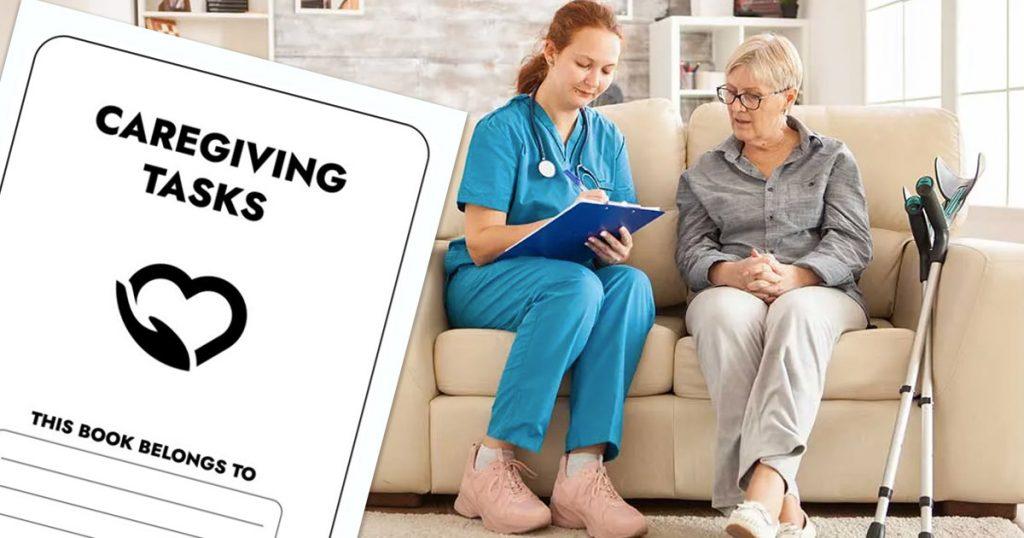Having a well-structured caregiver schedule is essential for providing consistent and compassionate care to elderly patients. A caregiver schedule helps ensure that the daily needs of seniors are met efficiently and effectively, improving their overall quality of life. Whether it’s managing medications, meals, or social activities, a well-planned daily routine can make a significant difference.
Why is it Important to Have a Daily Routine or Schedule?
Establishing a daily routine or schedule is crucial for elderly individuals, and here’s why:
- Consistency and Stability: A daily routine provides a sense of stability and predictability, which is particularly beneficial for those with memory issues or cognitive decline. This consistency helps reduce confusion and anxiety, making daily activities more manageable.
- Better Time Management: A structured schedule ensures that all essential activities, such as meals, medications, and exercise, are completed on time. This helps caregivers manage their time efficiently while meeting the needs of the elderly.
- Improved Physical Health: Regular routines can include time for physical activities and health monitoring, which are vital for maintaining physical health and managing chronic conditions. Scheduled exercise and balanced meals contribute to better overall health.
- Enhanced Mental Well-being: Engaging in regular activities, such as social interactions and hobbies, can improve mental health and prevent feelings of loneliness and depression. A well-planned schedule includes time for social and leisure activities, which are important for emotional well-being.
How to Establish a Routine: For Caregivers
Creating an effective caregiver daily schedule requires careful planning. Here’s a sample daily schedule for elderly patients, which can be adjusted based on individual needs:
Sample Routine
7:00 AM: Wake up and do gentle stretches or light yoga before getting out of bed. Follow with your morning hygiene routine.
7:30 AM: Enjoy a cup of herbal tea or coffee with a nutritious breakfast. Remember to take your morning medications.
8:00 AM: Spend some time reading a book, magazine, or watching a favorite morning show.
9:00 AM: Go for a walk around the neighborhood, participate in a virtual exercise class, or follow an exercise video at home.
10:00 AM: Have a short social visit or phone call with a friend, or work on a hobby like knitting or painting.
11:00 AM: Run errands, attend appointments, or prepare for a light lunch if the morning was spent at home. Take mid-day medications.
12:30 PM: Enjoy a balanced lunch, which might be with a friend at a local café or in the comfort of your home.
2:00 PM: Engage in relaxing activities such as listening to music, solving puzzles, or taking a brief nap. Have a cup of tea or coffee with a light snack (decaf if desired).
3:30 PM: Connect with family or friends through phone or video calls to stay connected and share updates.
4:00 PM: Start preparing dinner, focusing on a nutritious and enjoyable meal.
5:30 PM: Dinner time, providing a chance to enjoy a well-rounded meal and possibly some light conversation.
7:00 PM: Begin winding down with a bath or shower, change into comfortable clothes, and have a cup of soothing tea or warm milk. Spend time watching a favorite TV show or reading a book.
9:00 PM: Prepare for bed with a calming bedtime routine, including any final evening medications, and aim for a restful night’s sleep.
Benefits of Daily Routines for Seniors
Incorporating a daily routine into the caregiver schedule offers numerous benefits for elderly individuals:
Improves Cognitive Function
A consistent daily routine helps stimulate the brain and maintain cognitive function. Engaging in regular activities and routines can support mental clarity and memory retention.
Routines Lower Stress and Anxiety
Predictability in daily activities can significantly reduce stress and anxiety for elderly patients. Knowing what to expect each day can help them feel more secure and comfortable.
Allow for High-Quality Time with Family and Friends
A structured schedule provides dedicated time for social interactions, enhancing relationships with family and friends. This quality time contributes to a richer and more fulfilling life.
Routines Improve Sleep
Regular routines, including consistent sleep and wake times, can improve overall sleep quality. A structured bedtime routine helps signal the body that it’s time to wind down and prepare for restful sleep.
Establishes Time and Space for Things Like Exercise and Social Engagement
Incorporating designated times for exercise and social activities ensures that these important aspects of well-being are not overlooked. Regular physical activity and social engagement are crucial for maintaining health and happiness.
Supports Taking Medications on Time and as Prescribed
A well-planned daily schedule ensures that medications are taken on time, as prescribed. This helps manage chronic conditions effectively and prevents missed doses.
Optimize Your Caregiver Schedule for Better Quality of Life
Incorporating a well-thought-out caregiver schedule into your daily routine can greatly enhance the quality of life for elderly patients. By ensuring that essential activities are carried out consistently and effectively, caregivers can provide better support and improve the overall well-being of their loved ones. Establishing a sample daily schedule for dementia patients or any elderly individual can help maintain a balanced, healthy, and fulfilling lifestyle. With careful planning and consideration, caregivers can make a meaningful difference in the lives of those they care for.
